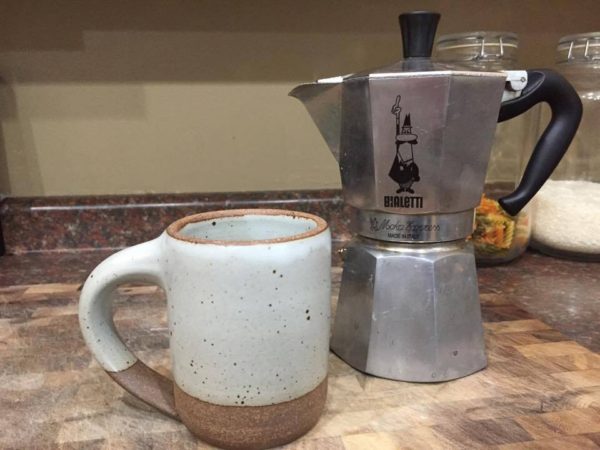“We are what we repeatedly do. Excellence, then, is not an act, but a habit.”
-Aristotle
I’m going to spend each month of this year focused on building a new good habit to help our family achieve our goal of location independence, doubling our net worth, and moving abroad in three short years.

Habits are the building blocks of our daily life, and I believe that focusing on replacing any bad or even “meh” financial habits with good ones will put our goals into hyper-drive.
Why good habits?
As I explained in this post, one of the books that has had the biggest impact on how I think is Charles Duhigg’s The Power of Habit: Why We Do What We Do In Life and Business. Using emerging findings from the field of neuroscience, Duhigg explains how habits are formed. Because our brains are the body’s biggest energy suck and use around 20% of the body’s available energy, they need to work as efficiently as possible. That’s why they try to automatize everything we do. Think about the first time you drive home from work to your new house. It’s so hard! You have to consciously navigate the unfamiliar route. After a week or two of making the drive, though, you don’t think about the turns. You navigate on autopilot while planning your dinner menu, recapping the conversation with your colleague, or deciding what to do this weekend.
Duhigg explains that everything in our lives is like this, even if we don’t realize it. If we habitually hit the “Snooze” button six times a morning, that’s a habit, whether we’ve meant for it to be or not. The more we engage in a repetitive behavior, the more deeply engrained that behavior becomes in our brain and the harder it is to change.
Cue, Behavior, Reward
The cool thing is, by using our brain against us, we can change, and in a radical way. Our brains use a cycle of Cue, Behavior, and Reward in our habits. Let’s say your alarm clock rings, you look over and see your Ipad sitting on your night table. In the past, hearing the alarm and seeing your Ipad is your visual and auditory cue to hit the “Snooze” button. But, if you change your cue by moving your Ipad to the hall (where you can still hear your alarm but will have to get up to turn it off), then your routine will be easier to change, too. You’ll have to get out of bed to hit the snooze button, dramatically decreasing the chances of doing that. If you couple your new behavior with an incentive to stay out of bed, a reward, you’ll really jump start your progress. The reward is something that should give your brain an endorphin rush, so that tomorrow, it will be motivated to stick with the new behavior. Right now, your endorphin rush comes from sleeping 8 more minutes, 6 times in a row. But if you set up the coffee pot the night before, then you can grab your Ipad, punch “Stop,” and follow your nose to the kitchen where a delicious, hot brew is waiting for you.

Research has shown that if you envision a reward for your new behavior and think about it when the temptation to revert to your old behavior is strongest, you’ll be more successful in developing your new habit.
So let’s get started!! What’s first?
Our family has used a budget to manage our daily finances since 2008. However, I don’t think I can say we have ever really “mastered” budgeting. This month, I’m going to sign up for YNAB (You Need a Budget), since I’ve heard so many people rave about how great the software is. In the past, we’ve always failed at sticking to our budgeting categories. We go over in many categories, and play catch up the next month. That is a negative cycle that carries over into December, when we use Hub’s end-of-the-year bonus to plug the leaks. But we have big goals! We’re breaking the cycle! I’ll keep you updated on my progress.
Making your bed, although not strictly a “financial” habit, has myriad implications for making yourself feel immediately successful at your day. In winter, we deal with sickness, lack of light, and gray days that can make me feel depressed. This month, I’m keeping the bar low, but going back to the basics, and making my bed every single day, early in the morning. Can one tiny change really change the way you feel and set you up for better financial decisions all day long? Try it out! Join me in making your bed every day in February.
This month, I needed to pick a habit that will help me focus. That is, with all the cacophony in the world today, I find it increasingly easy to become distracted, to not even remember what my goals are, much less achieve them. So this month’s habit will be setting Tomorrow’s Top Three. Every day, I’ll work to determine my top three goals for the following day and set them early, before lunch. I’ll also write the time I’d like to accomplish them by in my bullet journal.

For the month of April, I’m going to adopt another habit that might seem, at first pass, to have nothing to do with financial well-being. But, I’m firmly convinced that developing self-discipline in all parts of your life can help with self-discipline with your finances. So, this month’s habit will be…workouts after dinner!
Ah, yes, I succumbed to the attention-grabbing headline. But in a world with such information overload, what else can you do? And that’s what this month’s habit is all about: limiting my access to the constant barrage of information coming at me from my phone. For May, I’m moving my iPhone charger to the office, and putting it away as soon as I get home, so I can work on scrolling less and hanging out with the family more. I hope pretending like my phone got water damage every night will help me be calmer and happier during the evenings.
This month, I’m going to do everything in my power to make sure we eat all the food in our fridge and not waste anything. And I’ll also poke around in the nooks and crannies of our freezer and the recesses of our pantry to find those mystery Ziplocs and marinated mushrooms (but I’m feeding those to Mr. ThreeYear). Statistics show that in the US, up to half of all produce is thrown away, either before it makes it to the supermarket or after we buy it. The food we take home and throw away because we either over buy or forget about adds up to about $1600 per family!! We are guilty of food waste at our house, and even though we compost it, we’re still wasting money and the energy used to grow and transport all that food. So for June we are doing our best not to waste our food, and to eat it all!

For the month of July I’m going to take a page from my dad’s book, and track everything I spend by hand. He just bought a ledger and started to write every purchase down. Tracking is a habit that has always brought us so many financial gains, and we track every expenditure electronically through YNAB and Personal Capital. But I love the idea of manually writing down everything we spend for a month.
After a ridiculously spendy July and August in the area of restaurant eating, we’re going to eat all our meals at home from now (mid-August) til mid-September. If we go to the lake or to run errands, we’re packing a bag of snacks or lunch. I’m going to meal plan for the next thirty days so I know what we’re eating for every meal, and I’m going to have some ready-made meals stored in the fridge and freezer in the event of cooking fatigue. I’ll let you know how it goes!
With all of the hustle and bustle of this season of school and work starting, it’s easy for me to get frazzled and lose perspective. So I am going to stop for a few minutes each day and write down three things I’m grateful for. It will not only train my mind to focus on the good, rather than what’s wrong, with my life, but it will also slow me down for a bit each day, so that I can take the time to savor the beautiful fall weather, my family, and friends.

We are now a week and a half into October, and well into the routine of the school year. I drop the boys off at school each weekday morning, and drive fifteen minutes over to the neighboring school district to work. During this commute, I’ve been listening to podcasts, the first time I’ve consistently done so. What a fascinating experience!
During the month of November, I’m going to get up at 5am every day. That means I’ll need to go to bed at 9pm each night (9! So early!) to get enough sleep. If I don’t get eight hours of sleep, I don’t function. Getting up earlier will help me get more of the things I want to get done each day, done. And I’ll start the day writing and planning, which always makes me more productive the rest of the day.
Inspired by Amy at Life Zimplified, I’m going to make it a habit to laugh more during the month of December. I’m going to spend some time each morning, over the next month (in the warm summer air, under the Chilean sun!) writing funny things in my journal. I’m going to work to see the funny side of unfunny situations, and take time to linger over moments that are humorous and fun.
After a year of working on my money and productivity habits, I’ve thought a lot about what worked well. What was the #1 habit that I’m planning to carry over into next year? Check out my Reflections post for more.
Click here to read all about 2018’s Year of Good Food experiment.
